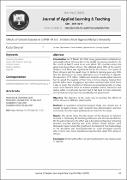| dc.description.abstract | As of March 1st, 2020, many governments embarked on
nationwide school closures due to the deadly coronavirus pandemic. As
the month of March came to an end, about 185 countries across the
globe had closed their schools. This affected about 90% of the world’s
students and Africa was significantly hit by this closure. The speed of
these closures and the rapid move to distance learning gave very little
time for planning or any other alternative form of learning. In Uganda,
the education of 15 million children and students was disrupted. Learners
had to spend the majority of their time at home playing, helping their
parents with chores, engaging in agriculture and also spare some hours
a day to study. The education of learners was impacted greatly. In urban
areas, some learners relied on lessons available online, televisions and
radios, while in rural areas, learners had to fall back on their notebooks
and printed learning materials provided by the government.
The objective of this study was to ascertain the effects of
school closure on different stakeholders.
A qualitative phenomenological study was carried out. A
sample of eight lecturers, eight students, four administrators and four
community members were purposively recruited for the study.
The results show that the impact of the closures on teachers
resulted in: (1) leaving the teaching profession, and (2) financial distress.
On the part of learners, the effect was a disruption of learning. Schooling
provides essential learning and when schools closed, learners were
deprived of opportunities for growth and development. The disadvantage
of the disruption was disproportionate for under-privileged learners
who tend to have fewer educational opportunities, apart from being in
schools.
Undoing the effects of learning disruption may require years
in Uganda. | en_US |


